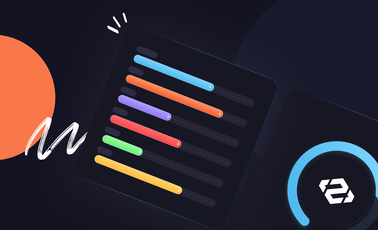7 Tips for Choosing the Best HR Software for Your Startup
Your day starts early as a co-founder. You kick the day off by spending an hour or so on the speech you will give at the tech summit in a few days. During your commute to work, you will be listening to the recording of the latest podcast you attended. Just as you are getting midway through the product meeting, you receive a text message from one of the best developer prospects you spotted, asking you whether he should come back later for the interview, the one that was scheduled for that morning and you completely forgot about. Your latest hire, the content writer, looks completely lost during the meeting as nobody bothered to help her with her onboarding, but you are too pressed to think about that. After the lunch, you will be joining a few other founders for a webinar, but first, you should decide what to do about the leave requests your only two designers filed at the same time. It would be nice, you think to yourself, if you had a Human Resources department at your disposal that could rid you of all this hassle.
A startup may not afford to establish a proper HR department for a long while. However, it also won’t be going too far if the co-founders spend their time worrying about the chores of HR instead of the more strategic aspects of business. A good HR software can address all the HR-related needs of a startup, but with the availability of tens of different platforms, the selection process itself can prove to be overwhelming. Cloud-based, on-premise, Human Resource Information System, Human Capital Management Software, Human Resource Management System, Applicant Tracking System, Succession Management System so on and so forth. There are plenty of options, which is never a bad thing. However, it just makes it harder to make the right choice. Here are a few points that could help you out as you try to choose the right HR software for your startup:
1 - Define your job-to-be-done
Modern HR software is a platform comprising different programs or modules. Most of these platforms are designed for enterprises or SMBs, which employ hundreds, if not thousands of people. Therefore, paying for such a system is probably too big of an investment for a startup to justify. Goals of a startup wildly differ from goals of more established companies. In order to compete with the Goliaths of the industry, startups need to find talented people and be able to hold on to them for the long term. Lacking the funds to hire the stars of the industry, startups should focus on finding hidden gems and developing them. Choosing the right candidates during the recruitment process and providing them with a stress-free, welcoming onboarding experience are known to improve the loyalty of an employee. An HR software with a good Applicant Tracking and Onboarding module might go a long way towards serving this job-to-be-done.
2 - Look for ease of use
Established firms are like well-oiled machines: They have detailed business plans, well-defined roles and processes, and tried-and-tested methods. Startups work in more chaotic ways. In a startup, everybody is pressed for time: There is too much work and not enough manpower. While established companies have dedicated HR departments that can spend weeks trying to master an HR software, startups cannot afford going through a steep learning process. Focusing on user-friendly packages that can be quickly deployed and integrated to other services without much fuss should be the way to go for startups.
3 - Make automation a top priority
One of the reasons you are looking for an HR software in the first place is to make life easier for you and your employees. HR is rife with paper-based manual work at every stage, from the job postings to leave management to offboarding. The more manual work you can offload to an HR software, the more time you and your employees will have in your hands to create value. Make sure that the HR software you choose comes with robust workflows and integrations that will unlock efficiencies for you.
4 - Make your employees part of the process
It is always a good idea to listen to your employees and let their input inform your search for HR software. Where do they think the current system is lacking? What are some of the best practices they experienced in their previous jobs? Is there a particular field like onboarding or leave management that they would like to see prioritized? Comments from your employees can change the way you look at HR. It can help you reimagine the experience you want to provide instead of just automating your existing HR processes.
Employee participation should not be limited to the searching phase, though. Once you settle on an option, having your employees personally type in their personal information, letting them review data and customize their training program will cultivate a culture of transparency and earn the trust of your employees, making them feel empowered.
5 - Customizability is king
Business life is full of uncertainty and this is all the more so for startups. As a startup founder, you don’t want to get locked into a choice you made at the very beginning that you won’t be able to back out of in the future. This also applies to the HR software you will choose. No matter what your initial requirements are, you want to have the flexibility to reconfigure your system as your company scales up. That’s why it would be wise to choose an extendable platform to which you can add new capabilities with modules or add-ons.
6 - Go for a system with mobile option
A founder’s life can get really hectic at times. Long trips, meetings with investors and attending all kinds of activities you will be involved in for networking purposes mean that you will spend very little time at your desk. You want to keep tabs on the HR side of things all the time, though. Being able to run your HR software on mobile gives you that chance. Signing off on leave requests and scheduling interviews on mobile and being in control of your payroll from afar could prove invaluable when you have to be out of town but your startup should keep working as usual.
7 - Seek capable, dedicated customer support
Every platform runs into hiccups from time to time. In case of a platform like an HR Management System, however, those hiccups need to be sorted out really quickly because they might have serious legal ramifications. Picking a platform that prides itself on providing excellent customer support can come in handy in those situations. Free and unlimited customer support can ensure that your HR software will keep delivering value for years to come.
Founding and growing a business is one of the most challenging things one can choose to do. Thankfully, founders have now access to a host of cloud-based platforms to help them handle supplementary business functions outside their core line of work. As you try to decide on which HR software system to buy, just set your priorities straight and everything will fall into place.




 Please
fill out this field
Please
fill out this field













